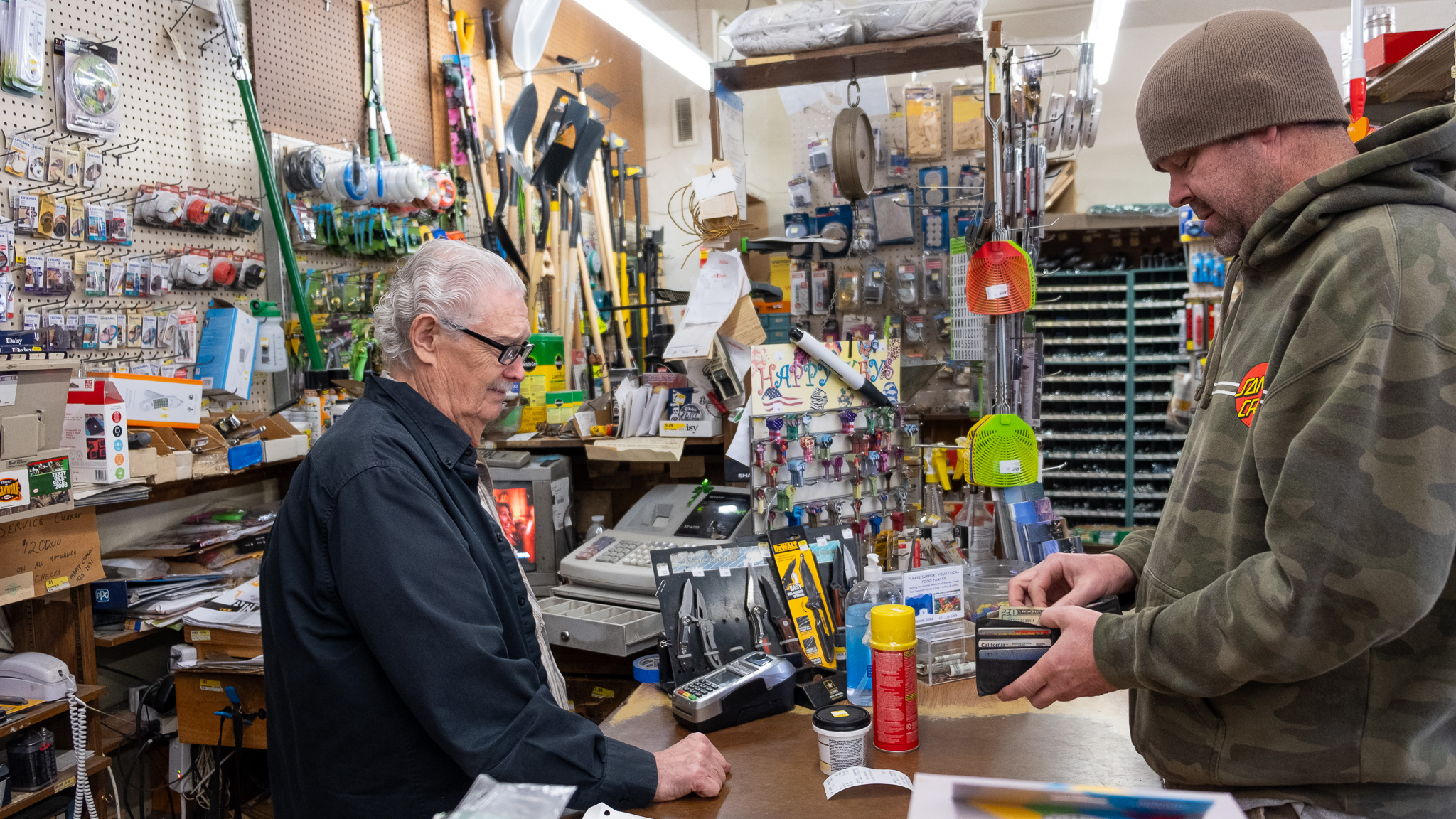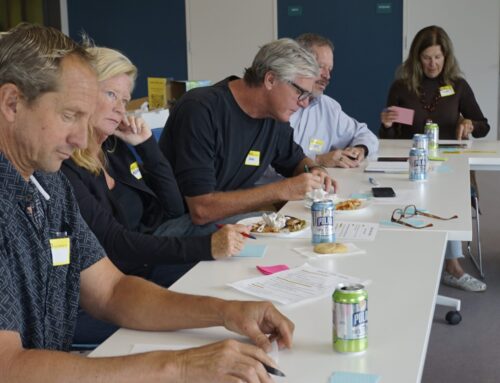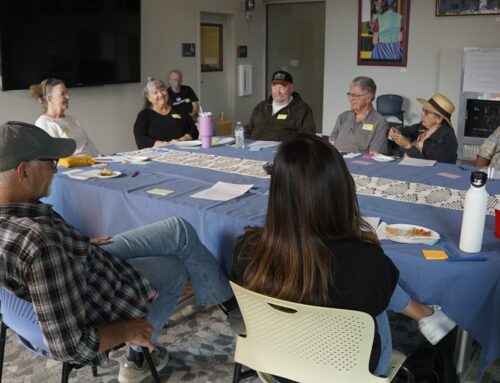
Measure K on the March 5 ballot would raise the county sales tax to 9.5% from 9%. Don Walker, owner of Felton True Value Paint & Hardware, makes a sale on Feb. 18. (Nik Altenberg — Santa Cruz Local)
Official results as of 5:20 p.m. Tuesday, April 2
K – Santa Cruz County Sales And Use Tax – Majority to pass
- Yes 41,640 (54.61%)
- No 34,609 (45.39%)
L – City of Santa Cruz Sales And Use Tax – Majority to pass
- Yes 11,302 (61.78%)
- No 6,993 (38.22%)
SANTA CRUZ >> Two ballot measures to raise sales taxes in the City of Santa Cruz and County of Santa Cruz won in official results posted April 2.
Measure K asked voters whether the sales tax rate in unincorporated Santa Cruz County areas should be raised to 9.5% from 9%. Yes on Measure K was adopted by voters with 54.6% of the vote.
Measure L asked voters whether sales taxes in the City of Santa Cruz should be raised to 9.75% from 9.25%. Yes on Measure L was adopted with 61.8% of the vote.
Both measures needed more than 50% of the vote to be adopted.
Measure K appeared on ballots of all county voters, but the tax hike will only apply to purchases outside of the cities of Santa Cruz, Watsonville, Scotts Valley and Capitola.
County sales tax background
If Measure K is adopted by voters, it would start July 1 and raise about $10 million annually for the county’s General Fund, county staff said. The General Fund was about $740 million in Fiscal Year 2023-2024. It pays for most county services.
The money from the sales tax hike could be used for any county purpose. County supervisors prioritized the first year’s spending of the increased tax revenue on:
- $1 million for housing and essential workforce retention.
- $1 million for countywide homeless services.
- $1 million to support climate resiliency and county parks.
- $1 million to fund road repair and infrastructure projects.
- An unspecified additional amount for other identified county services.
The county needs the money to meet the mounting costs of emergency response and road repairs, said Nicole Coburn, assistant county administrative officer. Disasters such as fires and floods since 2017 have cost the county more than $250 million, she said.
Opponents of Measure K have said that spending transparency from the last county sales tax hike has been less than stellar.
Measure G in 2018 increased the county’s sales tax by a half cent for 12 years. Ballot language for Measure G indicated that funding priorities included emergency response, county parks and local roads, and that the money generated would have “annual audits and citizen oversight.”
- It’s not clear if any of the money raised from Measure G has been spent on those funding priorities, because the money goes into the county’s General Fund and it is not specifically tracked.
- The county has not provided annual audits or citizen audits specifically on funds raised from Measure G, according to a 2022 Santa Cruz County Grand Jury report.
City of Santa Cruz sales taxes
Measure L would raise the sales tax in the City of Santa Cruz to 9.75% from 9.25% beginning July 1. It would raise about $8 million annually.
In the official arguments for Measure L in the county voter guide, supporters said money raised by the sales tax:
- Would pay for homelessness services, pollution control and wildfire prevention.
- Stays in the City of Santa Cruz and can’t be taken by the state.
- Is paid by visitors and residents.
The money raised by Measure L would go into the city’s General Fund and could legally be used for any purpose. City staff and some city council members have said the sales tax is needed to cover mounting costs for homelessness services, disaster response and other city services.
The city has been paying for homeless services with $14.5 million in state grants, but that money is running out, said Santa Cruz Mayor Fred Keeley. Many homeless services, including the shelter at the National Guard Armory in DeLaveaga Park, are set to lose funding after July 1.
“One of the key aspects of the sales tax increase is to be able to maintain the very positive gains we’ve been able to make on homelessness,” Keeley said in an interview.
No official arguments against Measure L were filed with the Santa Cruz County Clerk.
Read more
- Election Guide, March 5, 2024: Measure K – County of Santa Cruz sales tax increase
- Election Guide, March 5, 2024: Measure L – City of Santa Cruz sales tax increase
- Property tax changes proposed in Santa Cruz County — Nov. 9, 2023
- Road repair backlog mounts in Santa Cruz County — Oct. 27, 2023
- Santa Cruz County budget adds employees, services, savings — June 22, 2021
- Santa Cruz city leaders to consider higher fees, potential new taxes — June 23, 2023
- Santa Cruz city budget shows signs of recovery, but long-term problems persist — Dec. 12, 2022
Questions or comments? Email [email protected]. Santa Cruz Local is supported by members, major donors, sponsors and grants for the general support of our newsroom. Our news judgments are made independently and not on the basis of donor support. Learn more about Santa Cruz Local and how we are funded.
Stephen Baxter is a co-founder and editor of Santa Cruz Local. He covers Santa Cruz County government.





